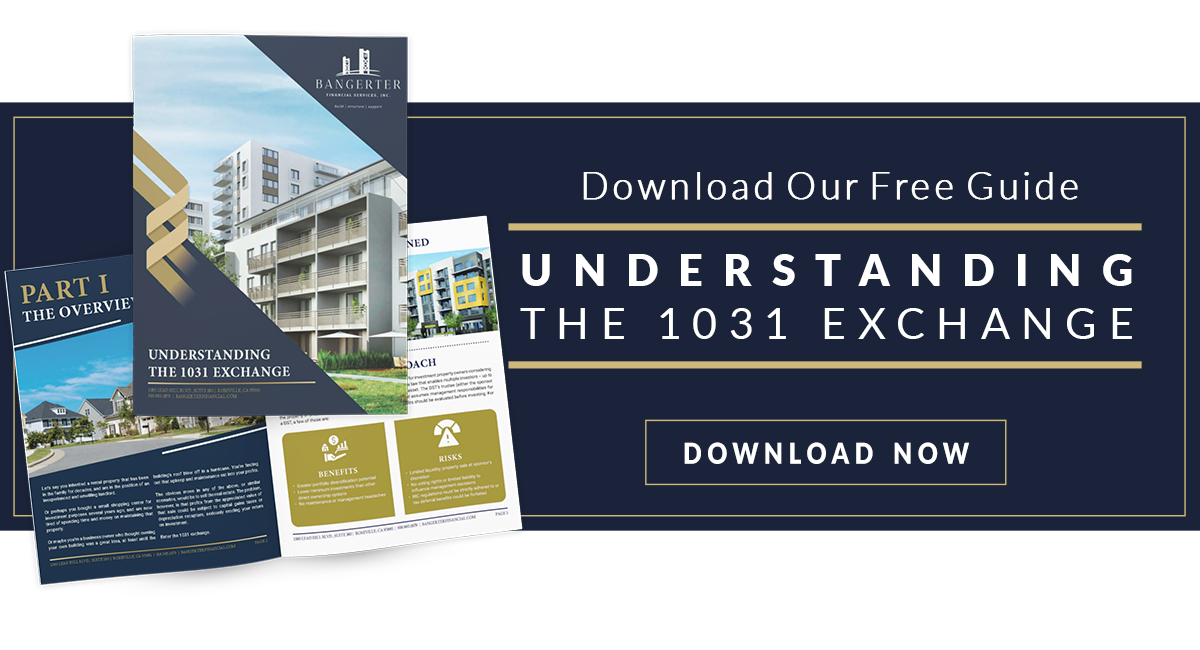Trusts are often involved in 1031 exchanges. For example, the relinquished property may be held in a revocable living trust formed for estate planning purposes. Or the replacement property may consist of an interest in a Delaware Statutory Trust (DST). Though serving different purposes, all of these trusts have certain common characteristics and follow specific rules. Understanding these characteristics and the regulations that govern these types of exchanges can help you overcome the challenges presented by trusts.
General Trust Principles
A trust consists of three parties: the trustee, the beneficiary(ies), and the grantor (often called other names like “settlor” or “trustor,” but “grantor” is the name favored by the IRS). The grantor forms the trust, usually according to a written trust agreement, by transferring property to the trustee. The trustee holds legal title to the property for the benefit of the trust beneficiaries following the provisions of the trust agreement.
A trust may or may not be a regarded entity for tax purposes. If the grantor retains certain powers over the property after the grantor has contributed property to the trust, then the trust is a “grantor trust.” The retained powers which create a grantor trust are outlined in IRC Sections 671 — 677. A grantor trust is disregarded for tax purposes, and the grantor remains the property owner for tax purposes.
The most common retained power creating a disregarded grantor trust is the power of revocability (IRC Section 676). A revocable trust is always a grantor trust. An irrevocable trust may be a grantor trust if the grantor has retained some other power, such as the “power to control beneficial enjoyment” (IRC Section 674). If the grantor has retained no other power, an irrevocable trust will be a regarded taxpayer.
Who is the Taxpayer?
A question often raised when a property is held in trust is, “who is the taxpayer doing the 1031 exchange?” The trustee holds legal title to the property, so is the trustee the taxpayer? And the beneficiaries have a beneficial interest in the property but are expressly excluded from exchanges under IRC Section 1031(a)(2)(E).
Actually, there are only two possible answers: (i) if the trust is an irrevocable trust where no other powers have been retained by the grantor (i.e., a non-grantor trust), then the trust is the taxpayer doing the exchange; or (ii) if the trust is a grantor trust (always the case for a revocable trust), then the grantor (the person who formed the trust and contributed property to the trust) is the taxpayer doing the exchange. These are the only possibilities.
Estate Planning Trusts
For decades, a popular tool used in estate planning has been the revocable trust, often called a living trust. This involves a grantor (an individual or a married couple) executing a trust agreement and transferring property to a trustee to be held in trust for the benefit of beneficiaries. The grantor and initial trustee are usually the same person.
Things start simple: the revocable living trust begins as a grantor trust, disregarded for tax purposes. However, things can get more complicated when grantors die. Upon the death of one or more of the grantors, irrevocable trusts may be created according to the trust agreement. These trusts may be regarded as taxpayers and may seek to conduct 1031 exchanges with the property they hold.
Delaware Statutory Trusts
Delaware Statutory Trusts are used to facilitate ownership of property by multiple owners. In a DST, a trustee holds legal title to a property, and investors can purchase “beneficial interests” in the trust. In Revenue Ruling 2004-86, the IRS determined that, because of the very limited powers of the trustee, the owners of the beneficial interests are treated as grantors of a grantor trust, and for tax purposes, own fractional interests in the underlying property held by the trust. Therefore, a beneficial interest in a DST that owns real property is of like-kind to a fee interest in real property.
Looking Ahead
We hope this discussion helps you better understand how qualifying trusts can use the 1031 exchange -- just like individual investors -- to enjoy the tax deferral benefits afforded by exchange rules. Our team at Bangerter Financial is knowledgeable in all aspects of 1031 exchanges and Delaware Statutory Trusts. We have worked with countless investors over the years, facilitating successful transactions on behalf of trusts that meet 1031 exchange requirements. Give us a call at 916-965-1879 and discover how we may be able to assist you as well!
 This is for informational purposes only, does not constitute as individual investment advice, and should not be relied upon as tax or legal advice. Please consult the appropriate professional regarding your individual circumstance.
This is for informational purposes only, does not constitute as individual investment advice, and should not be relied upon as tax or legal advice. Please consult the appropriate professional regarding your individual circumstance.
There are material risks associated with investing in DST properties and real estate securities including liquidity, tenant vacancies, general market conditions and competition, lack of operating history, interest rate risks, the risk of new supply coming to market and softening rental rates, general risks of owning/operating commercial and multifamily properties, short term leases associated with multi-family properties, financing risks, potential adverse tax consequences, general economic risks, development risks, long hold periods, and potential loss of the entire investment principal. Past performance is not a guarantee of future results. Potential cash flow, returns and appreciation are not guaranteed. IRC Section 1031 is a complex tax concept; consult your legal or tax professional regarding the specifics of your particular situation. This is not a solicitation or an offer to sell any securities.
DST 1031 properties are only available to accredited investors (typically have a $1 million net worth excluding primary residence or $200,000 income individually/$300,000 jointly of the last three years) and accredited entities only. If you are unsure if you are an accredited investor and/or an accredited entity please verify with your CPA and Attorney.
Investment advisory services offered through Bangerter Financial Services, Inc. A state Registered Investment Advisor. Registered Representative and securities offered through Concorde Investment Services, Inc. (CIS), member FINRA/SIPC. Bangerter Financial Services, Inc. is independent of CIS.




.png?width=273&height=103&name=Brokercheck%20(1).png)

Comments